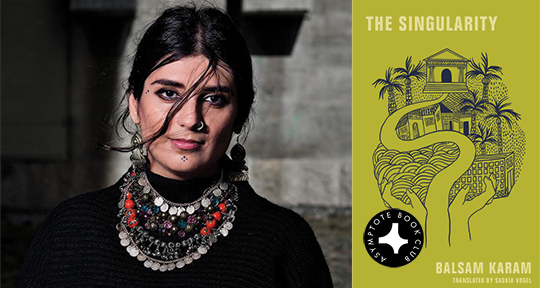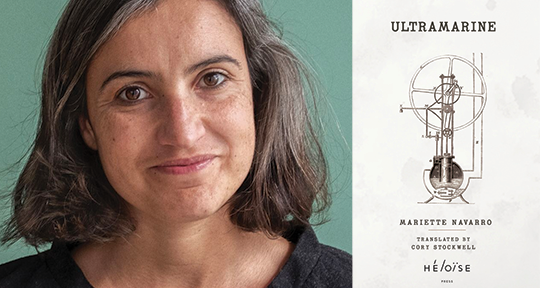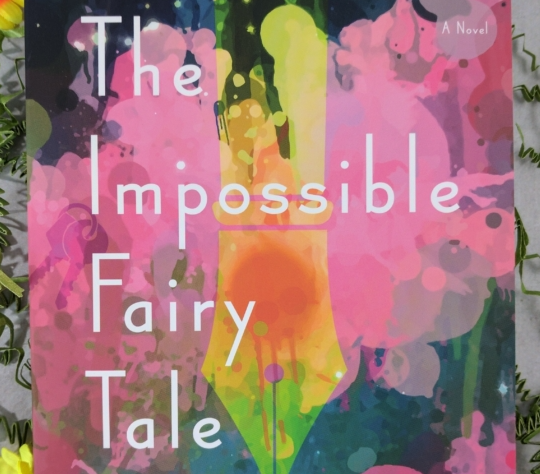With inimitable lyricism and an impeccable sense of balance, Balsam Karam’s The Singularity addresses some of the most complex elements of contemporary social reality. Yet, even as the thrilling narrative is intricately braided with the brutal realities of loss, displacement, motherhood, and migration, the novel’s innovative structure and bold, surprising style elevates it beyond story, revealing an author who is as precise with language as she is with illustrating our mental and physical landscapes. In starting off a new year of Asymptote Book Club, we are proud to announce this work of art as our first selection of 2024.
The Asymptote Book Club aspires to bring the best in translated fiction every month to readers around the world. You can sign up to receive next month’s selection on our website for as little as USD20 per book; once you’re a member, join our Facebook group for exclusive book club discussions and receive invitations to our members-only Zoom interviews with the author or the translator of each title.
The Singularity by Balsam Karam, translated from the Swedish by Saskia Vogel, Feminist Press/Fitzcarraldo, 2024
Meanwhile elsewhere—two women perched on the precipice in a tangential encounter, spun together by forces outside their control, as if in the singularity of a black hole. One woman is about to jump off the edge, bereft after the loss of her teenage daughter; the other will frame this moment as the beginning of the end for the child in her womb. No need for spoiler alerts here: what might feature as the climax in a more conventional narrative is laid bare in The Singularity’s prologue. That it nevertheless remains absorbing to its very end is a testament to the depth of feeling and dexterity with which the Swedish-Kurdish novelist Balsam Karam orchestrates the rest of this novel about grief, loss, migration, and motherhood.
Given this jarring beginning and its atypical (or absent) narrative arc, it is perhaps no wonder that as the rest of this novel unwinds, we are met with multiple displacements in time and perspective, echoing the geographical dislocation of the two central figures—both of whom are refugees—and the all-encompassing, omnipresent nature of the trauma they experience.
Before throwing herself off a tourist-thronged cliff in a bullet-ridden city, the first woman has been searching for The Missing One: her seventeen-year-old daughter, who never came home from her cleaning job on the corniche a few months earlier. After fleeing from their home, receiving scant help from the relief organization that occasionally visits with a “hello and how are you all then here you go and we’ll be back soon, even if it’s not true,” and finding little sanctuary living in a tumble-down alleyway at the fringes of this unnamed city, the mother seems to experience the disappearance of her daughter as the final loss that makes her lose herself. “What mother doesn’t take her own life after a child disappears?” the first woman asks the universe, or “when a child dies?” the second woman asks her doctor. READ MORE…








